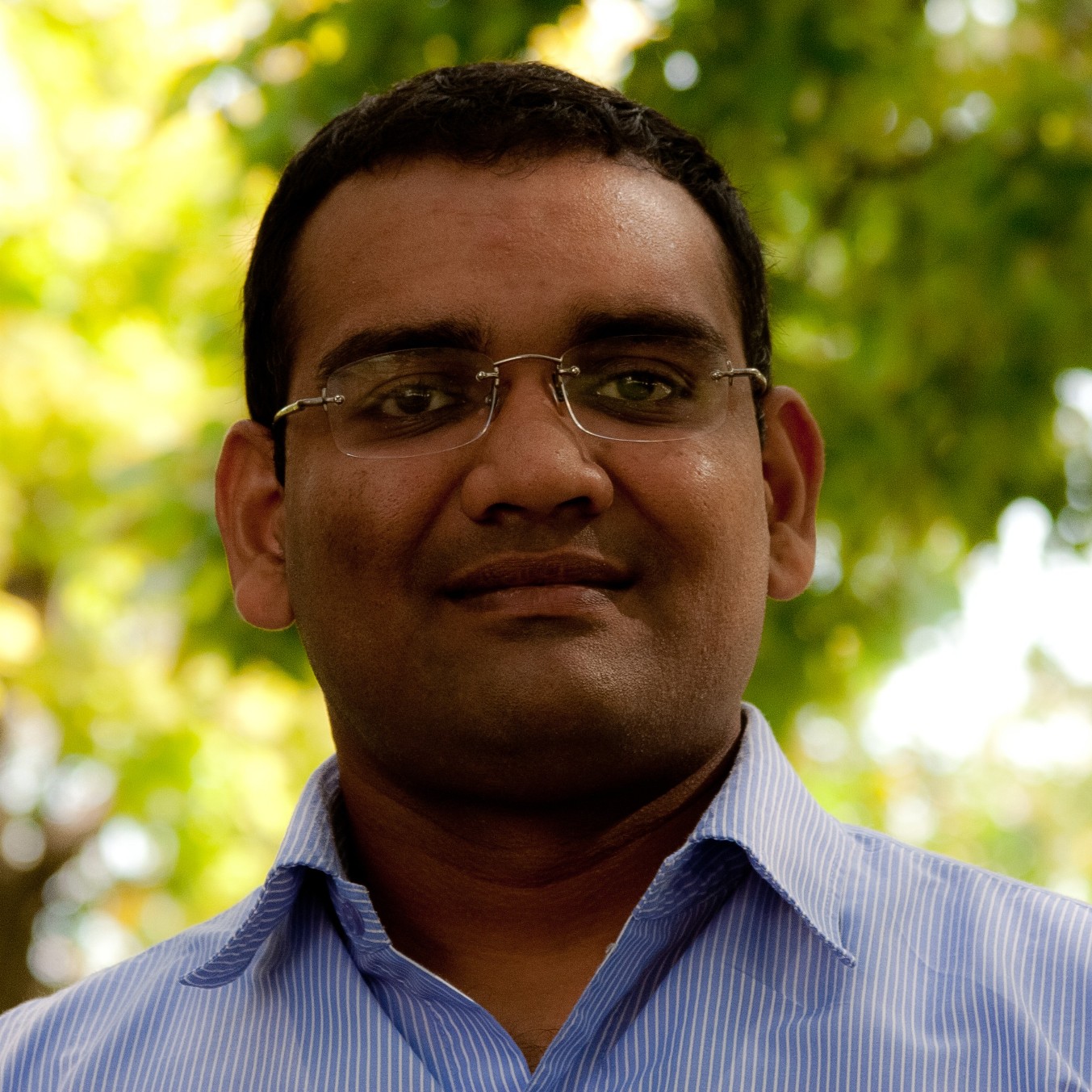| Presented by: Vijay K. Ramani Associate Professor and Hyosung S. R. Cho Chair Department of Chemical and Biological Engineering Illinois Institute of Technology, Chicago Presented at: 会议中心多功能厅 Date:October 12, 2012, 9:30-11:30AM . |  |
| Abstract: Polymer electrolyte fuel cells (PEFCs) are modular electrochemical energy conversion devices with applications in the automotive, stationary/distributed power, and portable power/military sectors. While there have been remarkable technological advances over the past two decades, fuel cell stack costs remain unviable primarily due to component lifetime limitations. Two primary degradation modes that currently limit stack lifetime and considerably increase stack cost due to the required over-engineering are: 1) the corrosion of electrocatalyst support during transient operating modes (e.g. start-up / shut-down) resulting in electrode thinning and loss of electrocatalytic activity, and 2) the free-radical-induced oxidative degradation of the electrolyte membrane during PEFC operation, resulting in membrane thinning and pin-hole formation. This talk will provide a brief overview of each degradation mode, explaining how they can led to catastrophic stack failure, and will then present the advances made in our laboratory to offer effective and novel solutions to these seemingly intractable problems. To mitigate support corrosion, a new class of mixed-metal-oxide supports have been synthesized, characterized, and evaluated in our laboratory. Testing both at IIT and at an automotive OEM has confirmed the exceptional corrosion resistance of this class of supports. To mitigate electrolyte degradation, a novel in-situ-fluorescence-spectroscopy-based technique has been developed in our laboratory to monitor, for the first time, the rate of reactive oxygen species (ROS, specifically OH* and OOH*) formation within the electrolyte of an operating PEFC. Remarkably effective regenerative free radical scavengers have been synthesized and evaluated in our laboratory; these materials, when added to the polymer electrolyte, have lowered the macroscopic rate of oxidative polymer electrolyte degradation by close to 2 orders of magnitude. In contrast to PEMs, poor ion transport and rapid chemical degradation are prevalent even at much lower temperatures (and under fully hydrated conditions) in anion exchange membranes (AEMs) used in alkaline anion exchange membrane fuel cells (AEMFCs). These are largely due to lower mobility and the potency of the hydroxide ion as a nucleophile, respectively. Time permitting, recent results on the influence of local cationic environment and counter-ion on transport properties and degradation in AEMs will be presented and discussed, in the broad context of AEM fuel cells for UUV propulsion. Biography: Vijay Ramani is an Associate Professor of Chemical Engineering at Illinois Institute of Technology, Chicago. His research interests lie at the interface of electrochemical engineering and materials science. Current research in his group (7 Ph.D. students, 2 postdoctoral fellows, and 3 undergraduate students) encompasses the synthesis of multi-functional electrolyte and electrode materials for polymer based electrochemical systems, analysis of the source and distribution of overpotential (losses) in electrochemical systems, and mitigation of degradation in electrochemical device components. NSF, ONR, and DOE currently fund his research, with mechanisms including an NSF CAREER award in 2009 and an ONR Young Investigator Award (ONR-YIP) in 2010. He is the immediate past Chair of the Industrial Electrochemistry and Electrochemical Engineering Division of the Electrochemical Society, and Vice President of Area 1E of AIChE. He is the recipient of a 3M non-tenured faculty award (2010) and the Supramaniam Srinivasan Award from the Energy Technology Division of ECS (2012). Vijay has a Ph.D. in from the University of Connecticut, Storrs, and a B.E. from Annamalai University, India, both in Chemical Engineering. Selected Publications: - “Assessing the influence of different cation chemistries on the ionic conductivity and alkaline stability of anion exchange membranes”, C. Arges*, J. Parrondo+, G. Johnson**, A. Nathan***, Vijay Ramani, J. Mater. Chem, 22 (9) (2012) 3733-3744 - “Investigation of PEM chemical degradation and degradation mitigation using in-situ fluorescence spectroscopy”, V. Prabhakaran*, C. Arges* and Vijay Ramani, Proceedings of the National Academy of Sciences, USA, 109 (4) (2012) 1029-1034 - “Degradation mitigation in polymer electrolyte membranes using metal nanoparticle additives”, P. Trogadas*, J. Parrondo+ and Vijay Ramani J. Mater. Chem, 21 (48) (2011) 19381-19388 - “Platinum supported on CeO2 effectively scavenges free radicals within the electrolyte of an operating fuel cell”P. Trogadas*, J. Parrondo+, Vijay Ramani, Chem. Comm., 47 (41) (2011) 11549-11551 - “Influence of binder properties on kinetic and transport processes in polymer electrolyte fuel cell electrodes”, S. Sambandam* and Vijay Ramani, Phys. Chem. Chem. Phys.,12 (2010) 6140-6149 |

